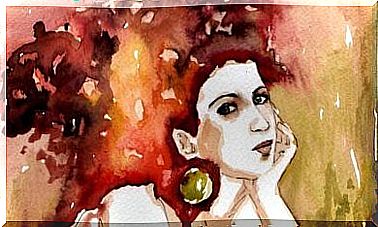Mental Flexibility: Strategies To Train It

Mental flexibility is the brain’s ability to adapt to unexpected situations or change. It is extremely useful when our thinking or natural behavior does not respond as it should to a new context. That is why it is important to know some strategies for training mental flexibility.
This phenomenon is also known as cognitive flexibility because it is directly related to learning and experience. Likewise, it is related to a healthy dynamic with which to relate to others. Let’s deepen the topic.
The benefits of mental flexibility
Mental flexibility offers many benefits, the most important of which is the ability to adapt quickly to changes. This helps to find more alternatives to perform the same action or to solve problems.
It also helps to develop a greater degree of tolerance towards those aspects of life with which we do not entirely agree. It opens the mind, allows it to perceive different dimensions of the same reality in another way.
Likewise, it encourages understanding mistakes with greater mental acuity. In this way, they are no longer judged as responsible for a frustrating situation, but as a lesson to improve. Finally, it stimulates greater empathy towards others, fostering meeting points from which both parties can benefit.
The aforementioned processes are essential for improving academic, work and life performance in general. This is because they offer us the possibility to optimize our plans, to set ourselves goals and to monitor our actions in order to intervene to correct them when necessary.

Strategies for training mental flexibility
How to train and develop mental flexibility? It is about changing perspective and some strategies are important to stimulate this change. Here are some of them.
1. Learn to observe
One of the most effective ways to train mental flexibility is to learn to observe. This skill, like many others, is acquired only by training it and is based on the ability to recognize details.
It represents a precious instrument of sensitivity in the face of everything that surrounds us, strengthening our ability to analyze and identify ourselves in various contexts. Likewise, it performs a cathartic function when observing becomes contemplating, which offers a relaxing and peaceful state.
2. Being rebellious allows you to train mental flexibility
Rebellion consists in challenging what has been established rather than passively following authoritarian models. It can represent positive and negative goals and give rise to healthy or reactive motivations. In its positive sense, rebellion represents another strategy to train mental flexibility.
Rebellion does not consist in going against everything, but in opening the doors to novelty or to what is different in order to break into monotony and test new realities. This means starting an analysis of reality and identifying the opportunities for change that derive from it.
3. Mental exercises
Mental exercises are also a way to train mental flexibility, especially those that require a good deal of effort. These exercises pose problems or questions that do not have immediate solutions. It is precisely in the phase of seeking a solution or an answer that flexibility is stimulated.
Performing mental exercises gives you the opportunity to develop skills and increases the chances of finding different responses to a given situation. At the same time, self-confidence and a sense of accomplishment are encouraged when looking for possible solutions.
4. Empathy to train mental elasticity
Empathy is the ability of the human being to perceive the other as his equal ; to express their admiration and appreciation for the thoughts and emotions of others, however different from their own. To put it in other words, it is the act of putting yourself in the shoes of others. That is why it is another way to exercise mental flexibility.
Empathy is one of the most important traits for building social relationships. The latter implies a certain predisposition to listening, assisting and understanding points of view other than one’s own. Furthermore, it encourages openness to dialogue, the space par excellence in which to discover points in common with the other.

5. Creativity
Creative activities are an extraordinary way to broaden horizons, to renew oneself and to overcome mental rigidity. Creativity arises when it is possible to see things from a new point of view. Here it represents one of the key points to train mental flexibility.
Creativity allows us to put our signature on what we do and to be original. It means inventing different ways to do the same thing or imagining new solutions to old problems, which is revitalizing and very inspiring.
Mental flexibility is not so much a skill as it is an attitude. As we have seen, it is possible to practice and develop it.
But what does it lead us to, in the end? It is a truly valuable tool, useful for adapting to different types of situations and making the most of it.









